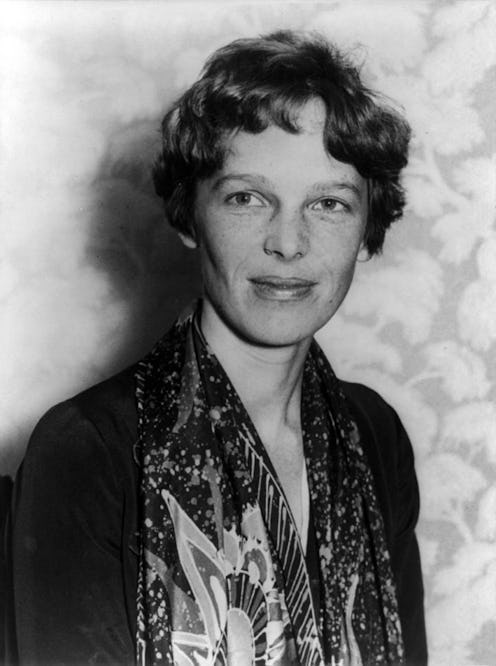Life
1930s Feminist Quotes That Still Make Sense Today

When it comes to notable strides in feminism, the decade of the 1930s isn't usually thought of as one of the most revolutionary periods of time; however, there are still a number of feminist quotes from the 1930s that were not only important at the time, but which are also still relevant today. It's true that the 1940s are more known for their feminist progress; additionally, the "roaring '20s" saw women achieve political participation with the passing of the 19th Amendment as societal attitudes shifted to allow both the flapper and the homemaker freedoms in and out of the home. By the time the '30s rolled around, progress within the sphere of women's rights had slowed down considerably — but it by no means stopped. Far from it, in fact.
The Great Depression and the mounting political pressures preceding WWII has led many historians to term the 1930s as a "feminist void", but in actual fact there were many pivotal moments in the decade of the ‘30s that well and truly put women’s rights on the map. Women in the 1930s actually entered the workforce at a rate twice that of men, and Eleanor Roosevelt (First Lady from 1933 to 1945) worked tirelessly to defend female workers in the public eye, helping alleviate female unemployment as part of her husband's New Deal. She worked alongside other female politicians such as the United States' first female cabinet minister, Frances Perkins, who was Secretary of Labor from 1933 to 1945. Meanwhile, in the creative fields during the '30s, women really thrived; avant garde artists like Zora Neale Hurston, and Gertrude Stein addressed unapologetically female topics through their work, and outspoken entertainers such as Katharine Hepburn and Josephine Baker also broke boundaries.
Here are six kickass quotes from the 1930s, that still make complete sense today.
1. "No one can make you feel inferior without your consent."
- Eleanor Roosevelt, This Is My Story
2. "Too often little attention is paid to individual talent. Instead, education goes on dividing people according to their sex, and putting them in little feminine or masculine pigeonholes … Girls are shielded and sometimes helped so much that they lose initiative and begin to believe the signs 'Girls don't' and 'Girls can't' which mark their paths… Consequently, it seems almost necessary to evolve different methods of instruction for them when they later take up the same subjects. For example, those courses which involve mechanical work may have to be explained somewhat differently to girls not because girls are inherently not mechanical, but because normally they have learned little about such things in the course of their education."
- Amelia Earhart, the first female pilot to fly solo across the Atlantic Ocean
3. "Being a woman has only bothered me in climbing trees."
- Frances Perkins, U.S. Secretary of Labor, 1933-1945
4. "Sometimes, I feel discriminated against, but it does not make me angry. It merely astonishes me. How can any deny themselves the pleasure of my company? It's beyond me."
- Zora Neale Hurston, writer and poet. I realize this is cheating a little bit, as the essay "How It Feels To Be Colored Me" was published in 1928, but it continued to resonate throughout the '30s... and, of course, it continues to do so today.
5. "Anything scares me, anything scares anyone — but really after all considering how dangerous everything is nothing is really very frightening."
- Gertrude Stein, Everybody's Autobiography
6. "Men and women, here and now, are able to exert their wills; they are not pawns and puppets dancing on a string held by invisible hands. They can act, and think for themselves. Perhaps even they can influence other people's thoughts and actions"
- Virginia Woolfe, Three Guineas
Images: Wikipedia Commons (6)